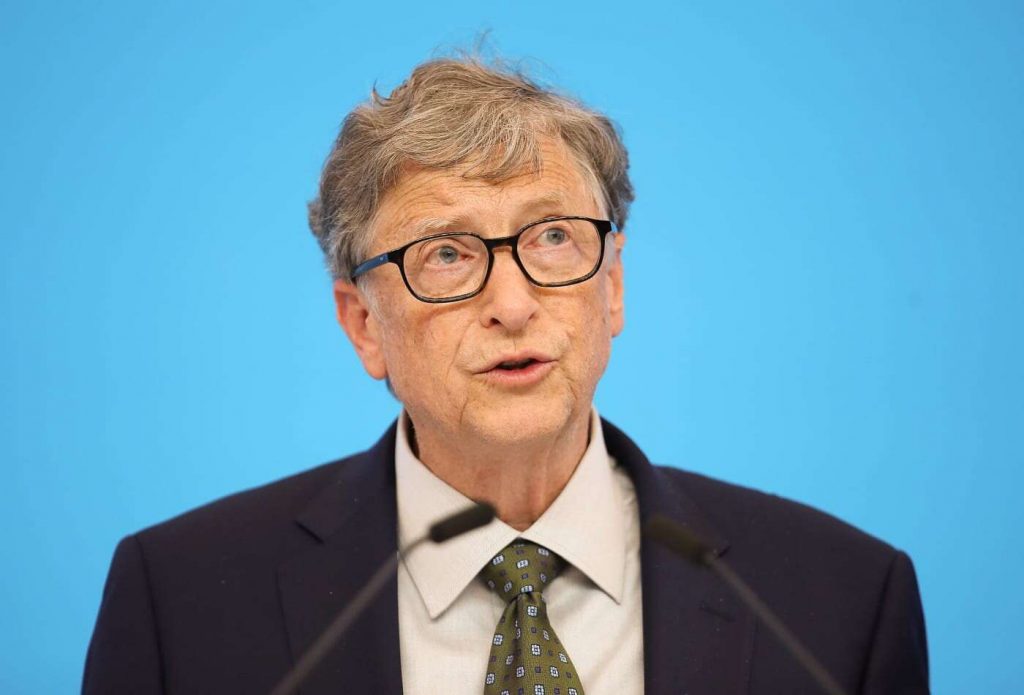Share!
Bill Gates, co-founder of Microsoft, has expressed his amazement over the low rates of coronavirus infections in sub-Saharan Africa.
Gates had reportedly warned in February that the coronavirus could overwhelm health systems on the African continent. He said the potential impact in sub-Saharan Africa could be “very, very dramatic.”
In an April 10 interview with CNN, his wife, Melinda Gates similarly expressed her belief that the coronavirus pandemic will have the worst impact in the developing world. She said she foresees bodies lying around in the street of African countries.
The co-chair of the Bill and Melinda Gates Foundation who has donated $1.7q5 billion to the global COVID-19 response however, noted that he was happy to have been wrong about COVID-19 rates in Africa.
“One thing I’m happy to have been wrong about—at least, I hope I was wrong—is my fear that COVID-19 would run rampant in low-income countries,” he wrote in his end of the year note.
“So far, this hasn’t been true. In most of sub-Saharan Africa, for example, case rates and death rates remain much lower than in the U.S. or Europe and on par with New Zealand, which has received so much attention for its handling of the virus.
“The hardest-hit country on the continent is South Africa—but even there, the case rate is 40 percent lower than in the U.S., and the death rate is nearly 50 percent lower.”
According to Gates, “more than 1.6 million people have died in the COVID-19 pandemic, with more than 75 million cases and tens of trillions of dollars in economic damages”.
“we don’t have enough data yet to understand why the numbers aren’t as high as I worried they would get” — but gave probable reasons Africa was not as affected as expected.
“It helped that some countries locked down early. In Africa, another reason may be that the population is young compared with the rest of the world’s, and young people are less susceptible to the virus.
“Another reason could be that its large rural population spends a lot of time outside, where it’s harder to spread the virus. It is also possible—though I hope this is not the case—that the true numbers are higher than they look because gaps in poor countries’ health care systems are making it hard to monitor the disease accurately.”
Gates said one of his fears that have been justified is that “COVID-19 is having a ripple effect with other diseases. Last month, I was surprised to learn that it was only the 31st most common cause of death in Africa. By comparison, it has ranked number four around the world, and number one in America.”
“Why does it rank so low in Africa? It’s not just the relatively low incidence of COVID-19 there. It’s also because shifting health workers to focus on the coronavirus disrupted efforts to detect and treat HIV/AIDS, malaria, tuberculosis, and other diseases. As a result, COVID-19 stayed low on the list of health threats, but other problems came roaring back.
“Another reason is that patients are more reluctant to go to clinics for fear they might become infected—and that means more severe conditions are going undiagnosed. In India, for example, the diagnosis rate for tuberculosis has dropped by roughly a third. With more undetected cases, more people will probably die from the disease.
“This is another reason why the world’s goal should be to make sure that lifesaving tools reach—and are practical for—every country, not just rich ones.”
Gates said 2020 has been a year of scientific advances and failures, “but there is good news coming in 2021”.
Related posts:
- ‘What I Find Positive About COVID-19 Response In Nigeria’ – Jonathan
- BREAKING: Lagos Records High As Nigeria Confirms 315 New COVID-19 Cases
- JUST IN: Governor Okowa’s Daughter Tests Positive For COVID-19, Family Goes Into Two Weeks Isolation
- 16 Foreign Nationals, 39 Other COVID-19 Patients Recover In Lagos
